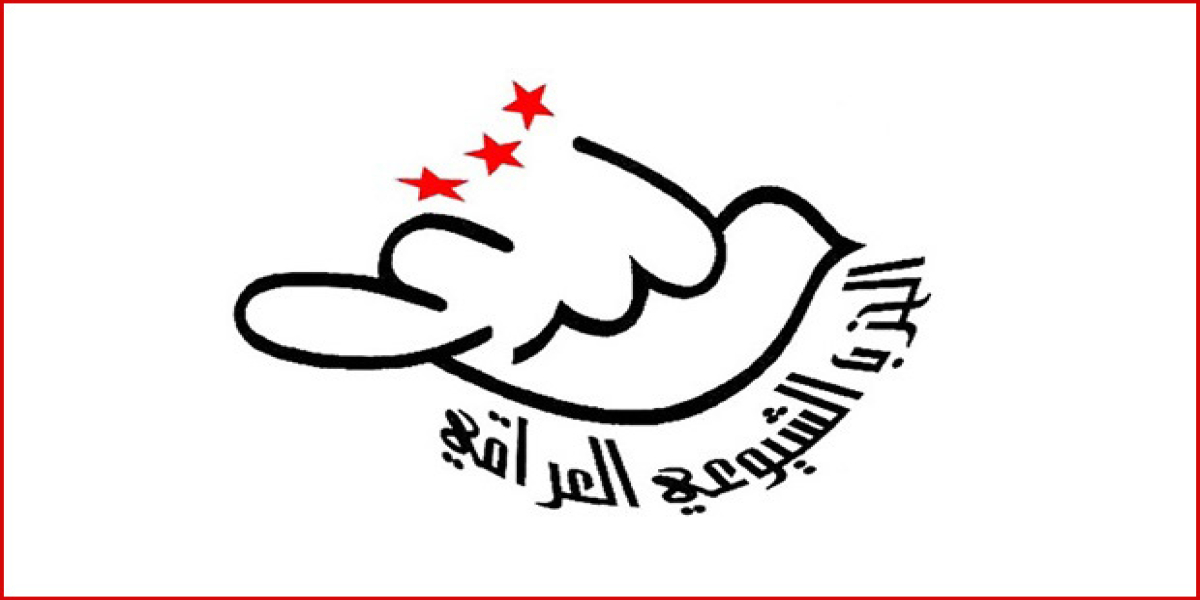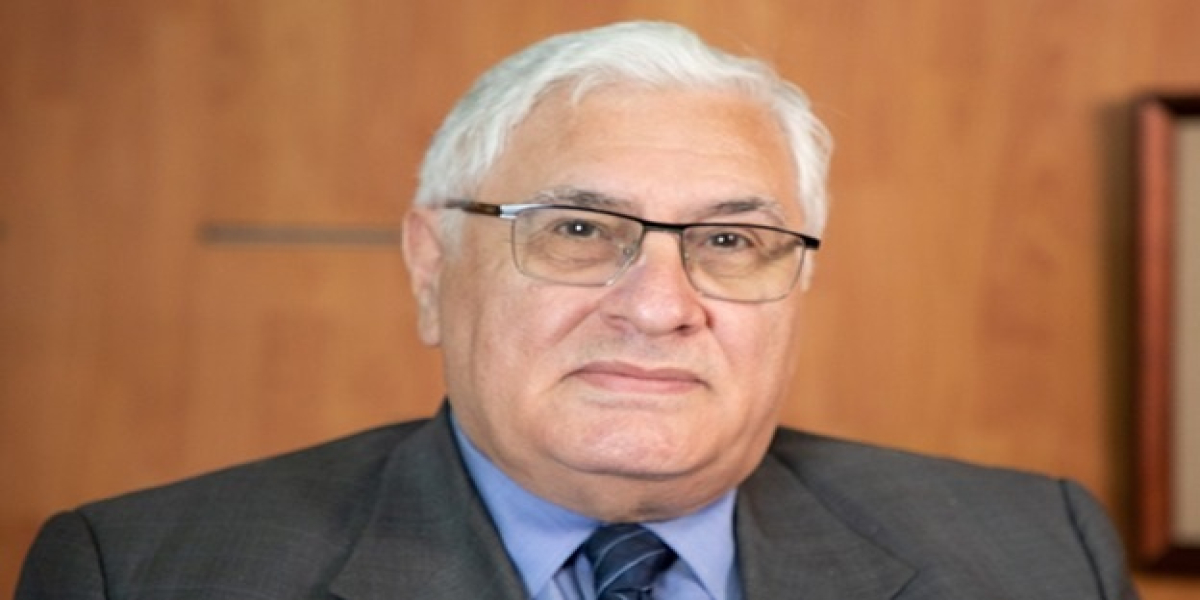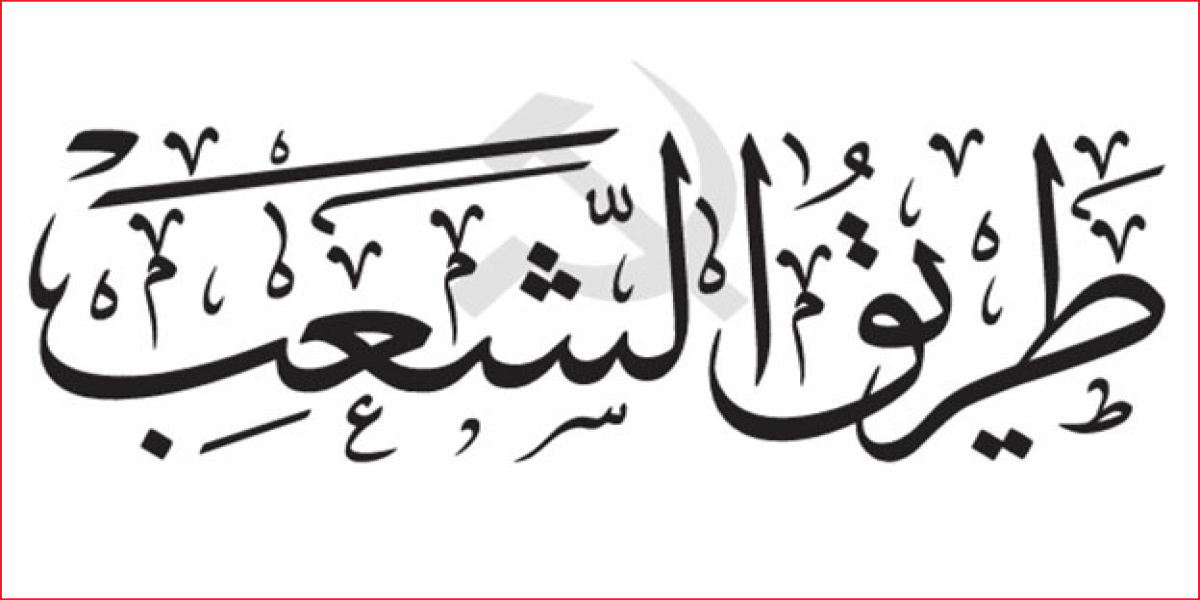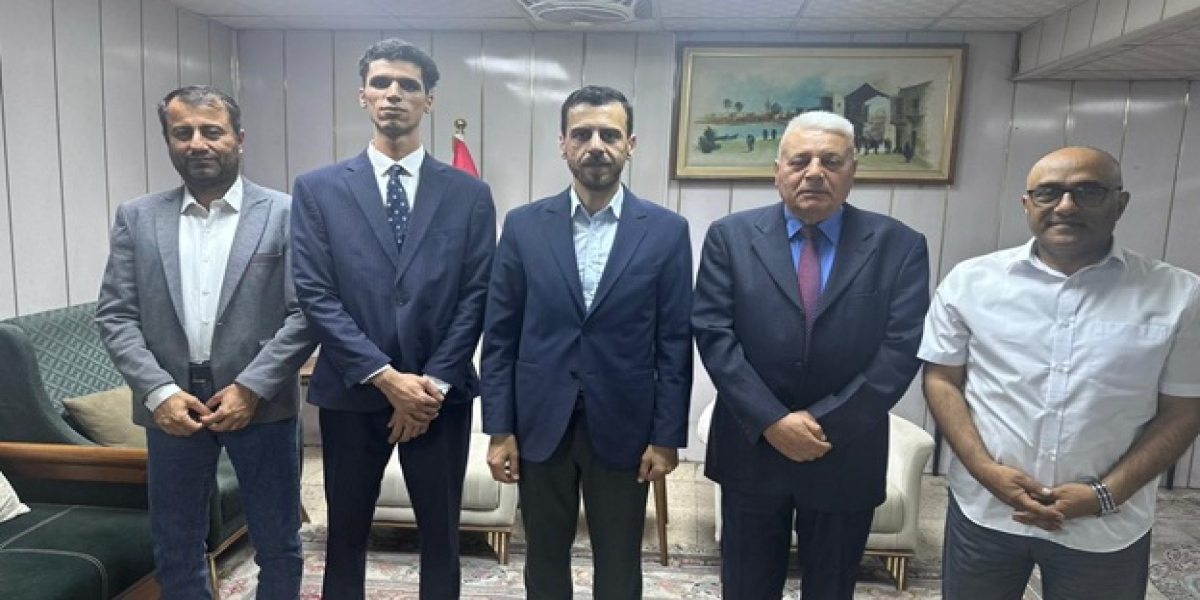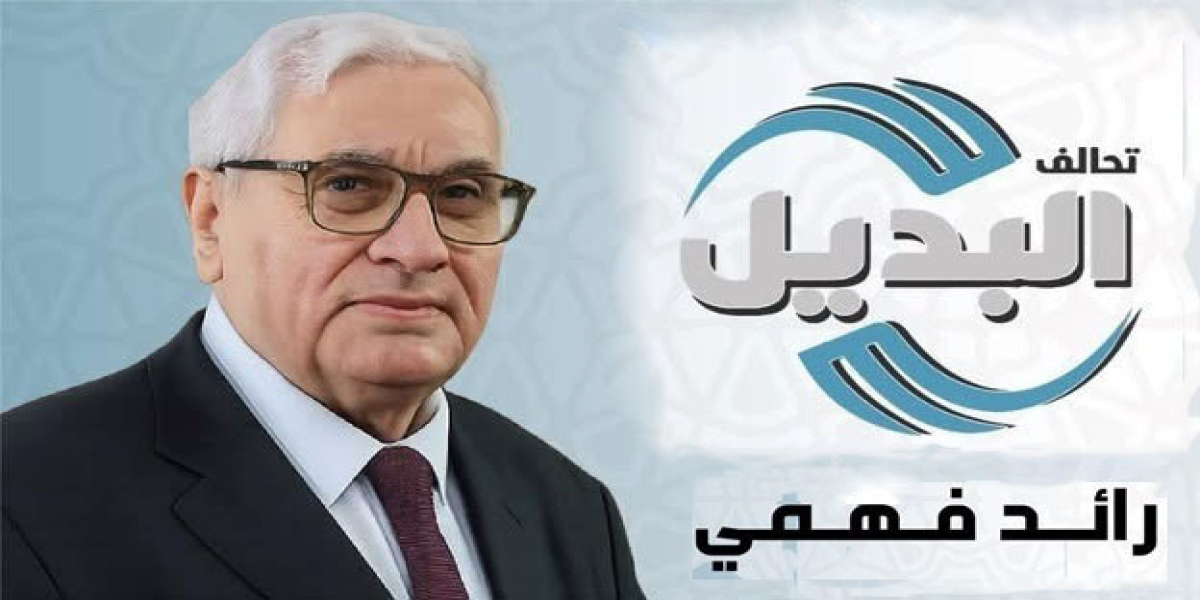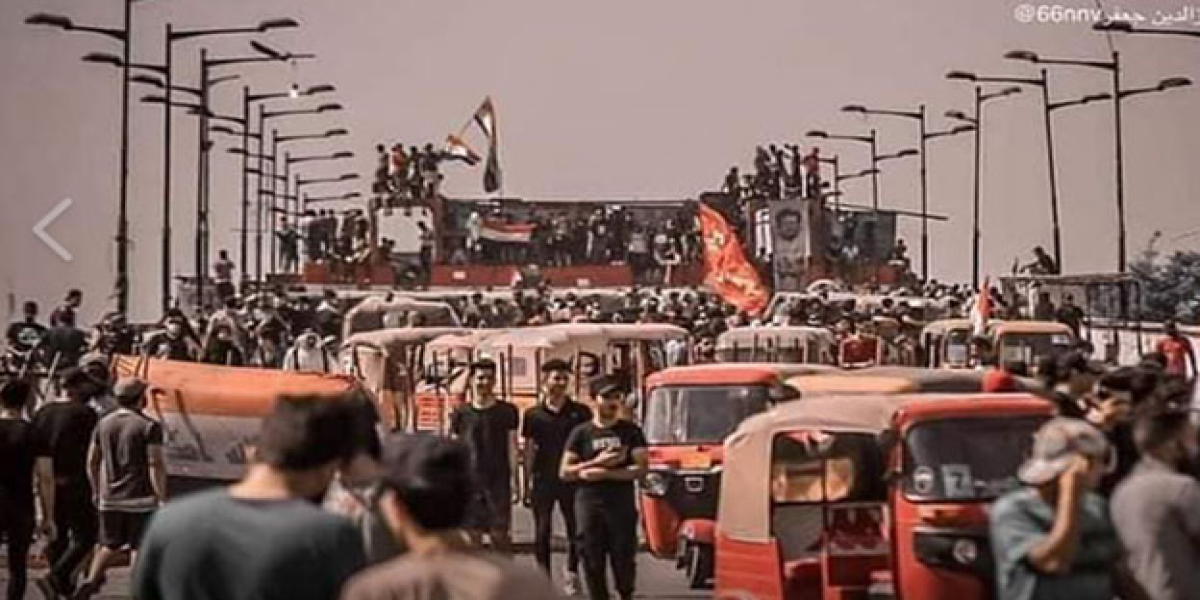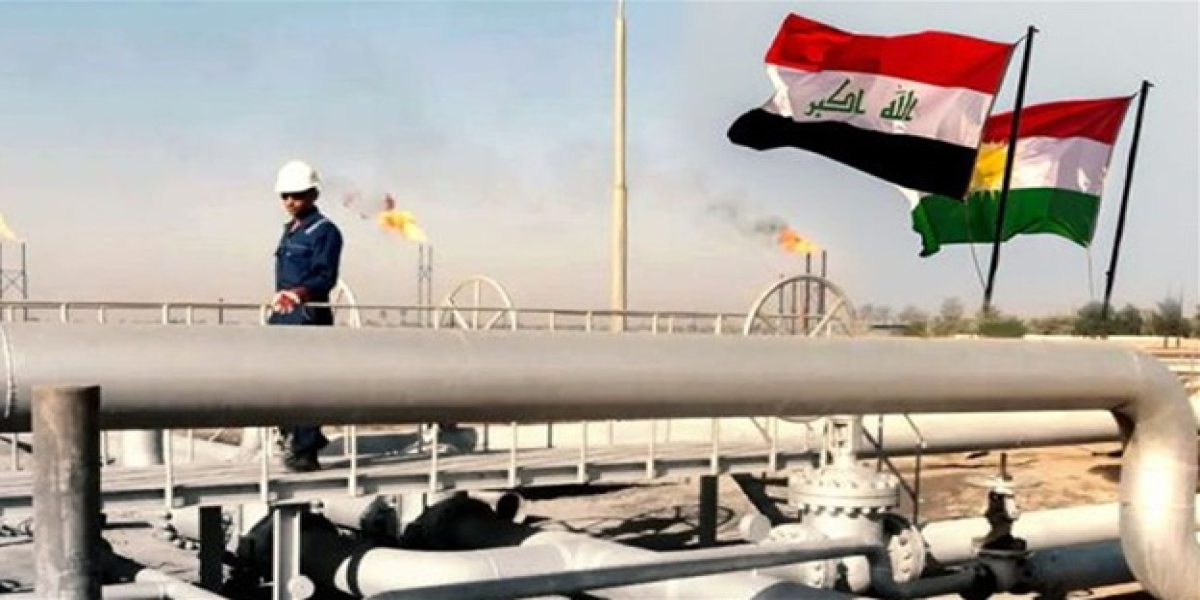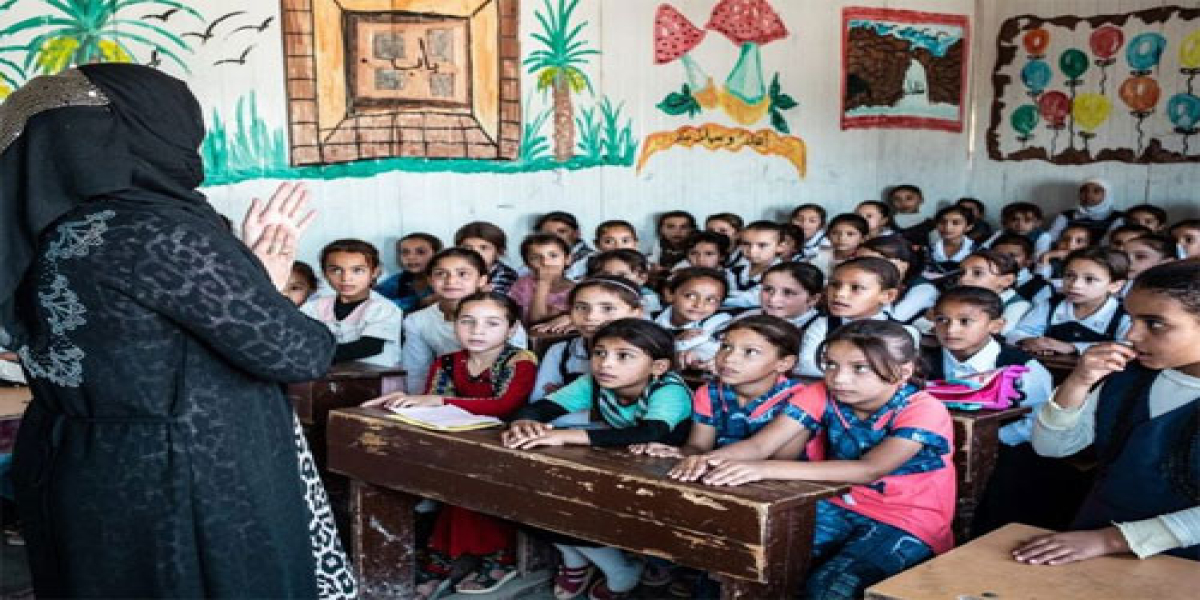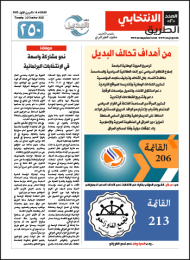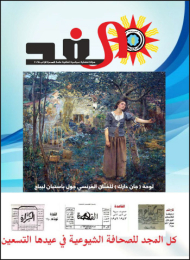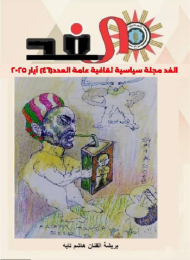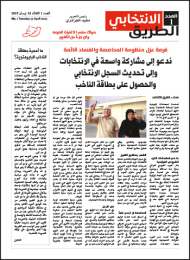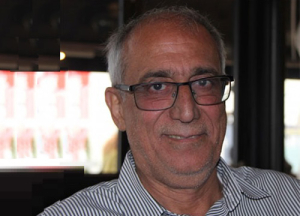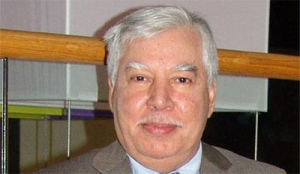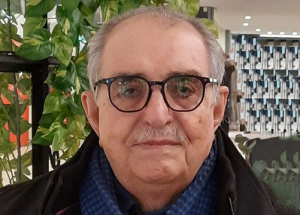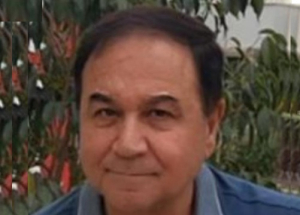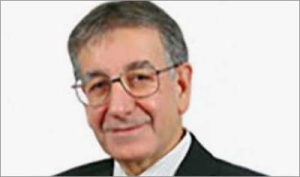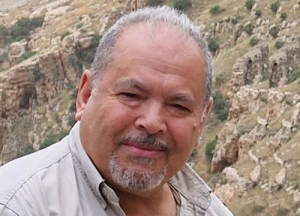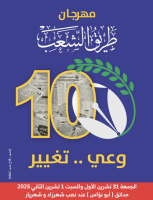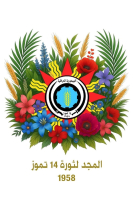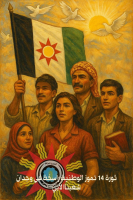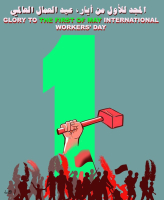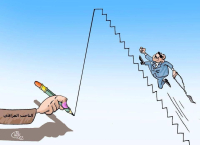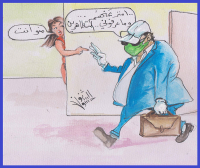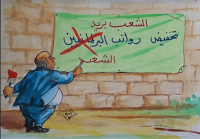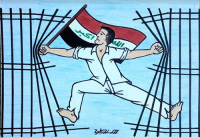- التفاصيل
- المجموعة: English
- الزيارات: 3022

von Salam Ali
Erst nach mehrwöchigem Taktieren der politischen Machtblöcke sowie dem inoffiziellen amerikanisch-iranischen Konsens, wurde die neue irakische Regierung unter Mustafa al-Kadhimi am 7. Mai vom irakischen Parlament gebilligt. Nun steht sie vor enormen politischen Herausforderungen, die durch die aktuelle, Corona-bedingte Wirtschafts- und Gesundheitskrise verschärft wird. Erschwerend kommen ausländische Interventionen, allen voran die militärische Aggression der Türkei gegen die Region Kurdistan im Nordirak hinzu.
Nachdem Ministerpräsident Adel Abdul-Mahdi Anfang des Jahres seinen Rücktritt hatte verkünden müssen - Sicherheitskräfte hatten in der Stadt Naseriyah im Süden des Landes dutzende junge Demonstranten regelrecht massakriert - währte die Bildung der neuen Regierung mehr als fünf Monate.
Die hartnäckige Weigerung der herrschenden Blöcke, den Forderungen der seit einem knappen Jahr andauernden Volksproteste nachzukommen, verstetigt die politische Sackgasse. Die Corona-Pandemie sowie eine beispiellose Wirtschaftskrise, die durch den starken Rückgang der Ölpreise verursacht wird, verschärften die Lage. Betroffen sind vor allem die armen und einkommensschwachen Schichten der Gesellschaft. Die Ressentiments der Bevölkerung gegenüber ihren Eliten wachsen. Als ob das nicht Herausforderungen genug wären, intensivierten sich in jüngster Zeit die Angriffe des IS auf Sicherheitskräfte nördlich von Bagdad.
Türkische Aggression und Anti-Terror-Kampf
Am 14. Juni startete außerdem die türkische Armee wieder einmal eine militärische Operation auf irakischem Boden, wodurch sie erneut die Souveränität Iraks missachtet. Die türkische Luftwaffe flog Angriffe mehrere Hundert Kilometer tief über irakischem Territorium, darunter gegen Flüchtlingslager in der Provinz Erbil und in Sindschar. Ihr Vorwand: Der Kampf gegen die Arbeiterpartei Kurdistans (PKK).
Die Kommunistische Partei Iraks (KPI) verurteilt diese neue, unverhohlene türkische Aggression und die Verletzung des Völkerrechts scharf. Sie rief sowohl die irakische Regierung als auch die Regionalregierung Kurdistans dazu auf, diese Verletzung der nationalen Souveränität Iraks zu verurteilen sowie den Abzug türkischer Truppen zu fordern. Gleichzeitig mit den türkischen Truppen drangen auch iranische Streitkräfte in Gebiete innerhalb der Region Kurdistan ein.
Nach Meinung der KPI, die die Präsenz ausländischer Militärs vehement ablehnt, muss ein nationaler politischer Konsens aufgebaut und die nationale Einheit gestärkt werden, um jede fremde Einmischung in die inneren Angelegenheiten des Landes zu beenden.
Dafür müssten einserseits die irakischen Streitkräfte gestärkt, von korrupten Elementen befreit und ihre Treue zu Land und Volk gewährleistet werden, so wie es auch die neue Regierung ankündigte. Diese Maßnahmen müssten die Auflösung bewaffneter Formationen einschließen, die illegal und außerhalb der zuständigen staatlichen Institutionen operieren.
Andererseits ist ein umfassender Ansatz notwendig, der eine Vielzahl von politischen, wirtschaftlichen, sozialen und kulturellen Maßnahmen bündelt. Denn trotz des militärischen Sieges über den IS, ist der Kampf gegen den Terrorismus nicht beendet. In den letzten Monaten kam es in einigen Gebieten erneut zu Angriffen von Resten des IS. Das beweist, dass militärisches Vorgehen nicht ausreicht, um den IS endgültig zu besiegen.
Corona-Pandemie verschärft die Krise im Gesundheitssektor
Die Corona-Pandemie trift, wie überall in der Welt, auch im Irak die Armen am härtesten. Sie machen rund ein Viertel der Gesamtbevölkerung aus. Die Zahlen der Neuerkrankungen und Todesfälle steigen aktuell stark. Die Zahl der bestätigten Fälle betrug am 27. Juni 2020 43.262. Bis zu diesem Datum gab es 1.660 Todesopfer. 19.938 Menschen haben sich hingegen von der Krankheit erholt.
Es ist zweifelhaft, ob die offiziellen Zahlen ein realistisches Bild der Lage widergeben. Sie basieren auf einer relativ geringen Anzahl von Tests. Knapp eine halbe Million Menschen von insgesamt über 40 Millionen wurden bisher getestet.
Die Pandemie macht, wie in vielen anderen Staaten auch, den bedauerlichen Zustand des irakischen Gesundheitssektors offenkundig. Die katastrophalen Folgen schlechter Finanzierung und erfolgloser Privatisierungsversuche treten nun deutlich hervor. Es fehlt an persönlichen Schutzausrüstungen, Beatmungsgeräten und Test-Kits. Die medizinisch sinnvolle Ausgangssperre beraubt die einkommensschwachen Schichten ihrer ohnehin mageren Tageseinnahmen.
Dennoch sind die Irakerinnen und Iraker voll des Lobes für die heldenhaften Bemühungen ihres Gesundheitspersonals. Bei allem Unglück, animieren die Herausforderungen der Pandemie zu einer beispiellosen gesellschaftlichen Solidarität.
Die KPI startete eine Kampagne, um den armen und einkommensschwachen Familien Lebensmittelpakete zur Verfügung zu stellen. Sie wurde begleitet durch Bemühungen zur Sensibilisierung für die öffentliche Gesundheit und Maßnahmen zur Bekämpfung der Ausbreitung der Pandemie. Junge Männer und Frauen, die meisten von ihnen seit knapp einem Jahr an den Volksprotesten beteiligt, stehen an vorderster Front dieser Kampagne.
Das Zentralkomitee der IKP forderte die Regierung auf, die Beschäftigten im Gesundheitswesen mit allen notwendigen Geräten und angemessener Pflege und Schutz zu versorgen.
Die Lösung: ein Zivilstaat und soziale Gerechtigkeit
Die Bildung der Al-Kadhimi-Regierung fusst auf dem Gleichgewicht der politischen Kräfte, dem Festhalten der herrschenden Blöcke am Quotensystem, das auf Interessen religiöser Sekten und verschiedenen Ethnien basiert, und die Einmischung fremder Staaten in die inneren Angelegenheiten des Irak. Zudem erschwerte den Regierungsbildungsprozess.
Dieser Prozess spiegelte jedoch auch die neuen politischen Realitäten wider, die seit vergangenem Oktober durch den mutigen Volksaufstand geschaffen wurden. Al-Kadhimi, der neue Ministerpräsident, bestätigt in seinem Regierungsprogramm, dass er eine Übergangsregierung führt. Bei seiner Rede vor dem Parlament, nannte er eine Reihe wichtiger Punkte, die zu den Hauptforderungen der Aufständischen gehören.
Die KPI hatte diese dringenden Forderungen bereits kurz nach dem Ausbruch des Volksaufstandes im vergangenen Oktober formuliert. Diese wurden nach Ausbruch der Corona-Pandemie und der Wirtschaftskrise erweitert.
Es handelt sich um folgende Punkte:
- die Corona-Pandemie und ihre Folgen müssen bekämpft werden;
- das Leiden der Menschen, insbesondere der armen und einkommensschwachen Schichten der Gesellschaft, muss gemildert werden;
- IS und andere terroristischen Gruppen sind zu bekämpfen;
- unter wirksamer Aufsicht der Vereinten Nationen und auf der Grundlage eines gerechten Wahlsystems sollen vorgezogene Wahlen abgehalten werden;
- die Verantwortlichen der Ermordung der friedlichen Demonstranten müssen zur Rechenschaft gezogen werden;
- wirksame Anti-Korruptions-Maßnahmen müssen beschlossen werden;
- außerdem: Probleme der Binnenvertriebenen gelöst, das Schicksal der verschwundenen Personen aufgeklärt und die vom IS befreiten Gebiete wiederaufgebaut werden;
- der tiefe Staat muss demontiert und die Milizen sowie illegale bewaffnete Elemente aufgelöst werden;
- eine alternative Wirtschaftspolitik, die zu einer nachhaltigen Entwicklung führt, muss angenommen, die Rentierwirtschaft beendet, die Wirtschaft diversifiziert und produktive Sektoren wiederbelebt werden
Und:
- die Souveränität Iraks muss geschützt, jegliche Einmischung von fremden Mächten gestoppt werden.
Keine der Forderungen Al-Kadhimis läßt sich ohne den Druck der Bevölkerung erreichen. Doch Ende Juli gingen Sicherheitskräfte erneut mit scharfer Munition gegen friedliche Demonstranten auf dem Bagdader Tahrir-Platz vor. Zwei Menschen sind gestorben. Ein solch blutiges und repressives Vorgehen kann das Land keinesfalls aus der tiefen Krise befreien. Im Gegenteil: Wut und Unzufriedenheit wachsen.
Die Al-Kadhimi--Regierung wird danach beurteilt werden, was sie am Ende tatsächlich erreichen kann. Die irakischen Kommunisten jedenfalls werden an den Forderungen der friedlichen Protestbewegung festhalten und den Druck der Bevölkerung aufrechthalten, bis das Quotensystem abgeschafft und die Alternative etabliert ist: ein demokratischer und sozial gerechter Zivilstaat.
Salam Ali ist Mitglied des Zentralkomitees der KP Iraks und verantwortlich für internationale Beziehungen.
- التفاصيل
- المجموعة: English
- الزيارات: 3335
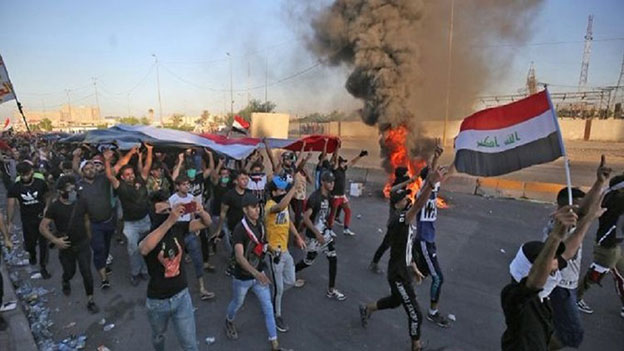
The Political Bureau of the Iraqi Communist Party issued the following statement on 27th July 2020:
At a time when the protesters and participants of the Uprising are impatiently waiting for the interim government to fulfil its promises, announce the names of the martyrs of the October Uprising and honour them along with their families, open the case files of the killers and those who gave ordersreferring all of them to the judiciary to receive their fair punishment for the massacres committed against the peaceful protesters, and provide protection for the arenas and areas of mass protests, our people were surprised last night by a large-scale and organised sweep by the "riot forces" of Tahrir Square in Baghdad, using live bullets and murderous arsenal against peaceful protesters. According to available information, this has so far led to the killing of two protesters, the injury of dozens others and the burning of their sit-in tents.
The events last night and the repression faced earlier by protesters and demonstrators demanding their rights and the provision of electricity and drinking water and other services, cannot be justified in any way. These acts deserve condemnation and denunciation and constitute a return to the practices of the previous government which was overthrown by the blood of the martyrs and the resilience of the protesters. They have consistently chanted "We Want a Homeland"; a homeland in which all its citizens live in safety and peace, free of oppression, killing, silencing voices and stifling the right to expression and peaceful demonstration that is guaranteed constitutionally.
We are absolutely certain that such bloody repressive practices will only aggravate the situation, and that they raise levels of resentment, anger, and discontent. This is a dangerous path that only leads to exacerbate matters and does not provide solutions to the chronic and emerging problems that plague the majority of the people. They are suffering scorching summer heat and facing the electricity crisis, the financial crisis, the deterioration of health, living and economic conditions, poor services, and the greed and corruption of the ruling minority.
The government, while bearing political responsibility for what happened last night, must open a broad, public and transparent investigation, and involve legal and civil bodies in this investigation. The most severe punishment must be administered to those who issued the orders, carried out this heinous act and committed this reprehensible crime. The government must respond without delay and procrastination to the demands of the peaceful protesters and the majority of the people, and those included in its own programme. People have been fed up with promises while more innocent blood is being shed, and the trio of poverty, hunger and disease continues to kill Iraqis.
The Parliament too must assume its responsibility and scrutinise the government about the bloody events witnessed in Tahrir Square yesterday, as well as all previous acts of repression, killings, assassinations and kidnappings.
The killing and repression must stop immediately!
Baghdad - July 27, 2020
- التفاصيل
- المجموعة: English
- الزيارات: 3065

The new Iraqi government headed by Mustafa al-Kadhimi was finally endorsed by the Parliament in the early hours of 7th May after several weeks of manoeuvres by the ruling blocs and an undeclared US-Iranian consensus. This important development came about more than 5 months after the previous Prime Minister Adel Abdul-Mahdi was forced to announce his resignation after a massacre of tens of young protesters committed by security forces in the city of Naseriyah in southern Iraq. Two previous nominees for the post of PM had failed to win consensus among the big blocs that dominate the sectarian-ethnic quota system. The latter attempted to keep Adel Abdul-Mehdi’s caretaker government in power despite fierce opposition from the protesters.
Among the principal demands of the Popular Uprising, that erupted on 1 October 2019, was the setting up of a transitional government that would prepare for early elections and also bring to justice those responsible for killing more than 700 peaceful protesters.
The obstinate refusal of the ruling blocs to comply with the demands of popular protests deepened the political impasse. An already deep political crisis was further aggravated by the coronavirus pandemic and an unprecedented economic crisis caused by the sharp fall in the prices of oil. Worst hit by these two recent crises were the poor and low-income strata. Popular resentment therefore intensified, threatening to ignite a new wave of protests with far-reaching consequences for the corrupt oligarchy. Furthermore, there has been a recent upsurge in terrorist attacks by remnants of Daesh targeting security forces in some areas in three provinces north of Baghdad.
The formation of Al-Kadhimi's government thus came about as a result of the current balance of forces, the clinging of ruling blocs to the sectarian-ethnic quota system and external interference in Iraq's internal affairs. But it also reflects the new facts that have been created in the political scene by the courageous October Popular Uprising.
The new PM declared in the programme which he presented to the Parliament that his government is transitional. He mentioned a number of important issues that are among the main demands of the people and the Uprising.
The Iraqi Communist Party had elucidated these urgent demands soon after the eruption of the popular uprising last October. They were further developed after the coronavirus pandemic and the new economic crisis. An editorial of the party newspaper “Tareeq Al-Shaab” (People's Path) on 8 May 2020 said that Al-Kadhimi’s transitional government has specific tasks, in the forefront of which are the following:
1- Combating the Corona pandemic, tackling its consequences and building an effective health sector that provides free basic medical services to citizens.
2- Alleviating the suffering of the people, especially the poor and low-income strata.
3- Confronting Daesh and terrorist groups through an integrated host of measures on security, political, economic, media and other levels.
4- Conducting early elections under effective UN supervision and on the basis of a just electoral system. The right of expression, the right to peaceful demonstrations and protests, civil freedoms and women's rights must be respected.
5- Bringing to account those responsible for killing the peaceful protesters, halting all proceedings and harassment against them, and annulling the infamous “pledges" extracted under torture.
6- Taking firm measures against corruption and opening all cases, big and small.
7- Resolving the issues of the iinternall-displaced people, reveal the fate of the forcibly disappeared, and rebuilding the areas that were liberated from Daesh.
8- Dismantling the Deep State, taking concrete steps to ensure that arms are totally under the control of the state, and putting an end to the role of militias and outlawed armed elements.
9- Adopting an alternative economic policy that leads to sustainable development, tackling the rentier state of the economy, diversifying it and reviving the productive sectors: agriculture, industry and services, in addition to tackling the high levels of unemployment and poverty.
10- Protecting the sovereignty of the Iraqi state, ensuring the independence of national decision-making and preventing external interference in Iraq's internal affairs.
One of the big challenges facing the new government is the fact that there is a lack of trust between the citizens and the state and its institutions as a result of sectarian politics and endemic corruption. Urgent steps are therefore needed to remove existing suspicions among the people. It is also quite clear that none of the promises made by the new PM, Al-Kadhimi, can be achieved without popular pressure.
The new government will therefore be judged on the basis of what it actually achieves, in deeds not words, regarding these priorities and concrete measures.
Iraqi Communists, meanwhile, remain fully committed to the demands of the people and the peaceful protest movement, and to continuing the popular pressure, until their goal in getting rid of the sectarian-ethnic quota system, and establishing the desired alternative: a democratic civil state and social justice, is achieved.
- التفاصيل
- المجموعة: English
- الزيارات: 4134

The Coronavirus pandemic in Iraq has seriously impacted the people, especially the poor. According to the latest official figures, on 24 May 2020, the total number of confirmed cases was 4469, with 160 deaths and 2738 recovered.
The government initially issued health advice and warnings to the public. However, when the Coronavirus was declared a global health emergency by the WHO, and neighbouring Iran became one of the major hotspots of the pandemic, strict measures were imposed, culminating in a curfew. It was partially lifted on 20 April 2020 in preparation for Ramadan, despite a warning from the WHO that the epidemic has not yet reached its peak.
There is deep concern that the official figures do not reflect the gravity of the situation. They are based on a small number of tests, totalling no more than 188,685 (as of 24 May).
The pandemic has exposed the dilapidated state of the health sector in Iraq and highlighted the catastrophic consequences of poor funding and attempts of privatization. There has been a lack of essential protective personal equipment (PPEs), ventilators and test kits. On the other hand, Iraqis are full of praise for the valiant efforts of the medical and nursing cadres and health workers.
The pandemic has compounded the hardship suffered by the poor in Iraq, numbering more than 10 million in a population of 40 million, according to official figures. As a result of the curfew imposed by the government on 17 March 2020, the poor and low-income strata were deprived of their meagre daily earnings. The government’s efforts to alleviate their suffering have been pathetic.
The pandemic has, however, instigated an unprecedented societal response and a spirit of communal solidarity.
The Iraqi Communist Party launched a mass campaign for Social Solidarity were to provide food parcels to poor and low-income families. This campaign is coupled with efforts to raise public health awareness and measures to combat the spread of the pandemic. Young men and women, most of whom were involved in the popular protests since 1 October 2019, have been at the forefront of these efforts.
Raid Fahmi, the Secretary of the party's Central Committee issued a greeting message to the workers in the health sector on the occasion of Eid al-Fitr expressing gratitude for their selfless efforts in confronting the coronavirus under very difficult conditions. He called on the Iraqi people to support these efforts to enable the medical and nursing staff and other health workers to carry out their patriotic and humanitarian duty. This requires effective implementation of preventive measures adopted by the health authorities. Comrade Fahmi also called on the government to provide the health workers with all the essential equipment and proper care and protection.
Women’s organisations have also condemned the rise of violence against women since the curfew was imposed. They Iraqi Women’s League called for speeding up the enactment of a law deterring domestic violence and protecting women. In a statement issued on 19 April, it pointed out that the Iraqi authorities have not taken a firm stand on women’s issues and domestic violence. It called for intensified efforts to protect women and safeguard their fundamental rights, putting an end to violence, oppression and exploitation.
- التفاصيل
- المجموعة: English
- الزيارات: 2482

In the name of freedom, peace and truth— Against fascism and war
The victory over Nazi-fascism in the Second World War is a major event in History, the memory of which must be preserved and defended in the face of repeated attempts at historical falsification aimed at making us forget the decisive role played by the Union of Soviet Socialist Republics, by the communists and by anti-fascists from around the world.
Generated by capitalism, Nazi-fascism was the most violent and terroristic manifestation of monopoly capital. It was responsible for the outbreak of this war of aggression and plunder that caused close to 75 million deaths, of which approximately 27 million were Soviet citizens, and for the immeasurable suffering and horror of the Nazi concentration camps. The peoples can also not forget dark pages, such as the atomic bombings of Hiroshima and Nagasaki by the USA, without any military justification, which represented a display of power and of their world-wide hegemonistic ambitions.
The Second World War (1939-1945) was the result of increasingly acute inter-imperialist contradictions and, at the same time, of the intention to destroy the first Socialist State, the USSR, which was namely expressed in the support and connivance of the United Kingdom, France and the United States with the rearmament and expansionist ambition of Nazi Germany.
In commemorating the 75th anniversary of the historic Victory on May 9, 1945, the undersigned communist and workers' parties, certain in the knowledge that they portray the feelings and aspirations of workers and peoples from all over the world:
- Pay tribute to all those who gave their lives on the battlefields against the Nazi-fascist hordes and in particular to the heroism of the resistance movements and anti-fascist fighters and to the heroic Soviet people and Red Army, led by the Communist Party, whose contribution, written in heroic pages such as the battles of Moscow, Leningrad and Stalingrad, was decisive for the Victory over barbarism;
- Consider that the Victory over Nazi Germany and its allies in the Anti-Comintern Pact was achieved thanks to the decisive contribution of the USSR, to the class nature of the Soviet power with the participation of the masses of the people, to the leading role of the Communist Party, to the superiority which was displayed by the Socialist system. That victory is an enormous historical legacy of the revolutionary movement;
- Value the outstanding advances in the social and national emancipation of the workers and peoples that the Victory and the resulting advancement of the forces of social progress and peace made possible, extending the sphere of socialism within the countries of Europe, Asia and Latin America, creating the conditions for the advance of the labour movement in capitalist countries, the sweeping development of the national liberation movement and the resulting liquidation of colonial empires;
- Denounce and condemn the campaigns that aim to belittle, distort and even deny, the role of the USSR and of the communists in the defeat of Nazi-fascism and also to unjustly and falsely blame the Soviet Union for starting the Second World War, to expunge the responsibilities of big capital and the governments at its service in the promotion and rise of fascism and in unleashing the war, and whitewash and rehabilitate fascism, while destroying the monuments and memory of the liberating Soviet army, promoting anti-communism and criminalizing communists and other anti-fascists;
- Denounce and condemn the EU’s anti-communist resolutions and the slanderous historical falsification which attempts to equate socialism with the fascist monster;
- Warn that the most reactionary and aggressive sectors of imperialism are increasingly viewing fascism and war as a “way out” of the deepening crisis of the capitalist system, whose inhuman character becomes particularly obvious when, even in the face of the very serious epidemic outbreak of Covid-19, imperialism, the USA, NATO, the EU and its allies capitalist powers, continue a criminal policy of blockades and aggressions against countries and peoples;
- Consider that the struggle for peace, social progress and socialism are inseparable; and make a commitment to seek a stronger common action of the working class, of the workers and peoples of the world, of the political forces engaged in blocking the path to fascism and in the struggle against imperialism, imperialist aggressions and a new war of tragic proportions.
The situation with which the workers and peoples of the world are confronted underlines the importance of strengthening the struggle against imperialism, for the sovereignty of the peoples and the independence of States, for the rights of the workers and peoples, as leading forward to the revolutionary overcoming of the capitalist system, a system which breeds fascism, war, the injustices, dangers and contradictions of the present. As it was 75 years ago, it is today the struggle of the communists and all those facing capitalist exploitation and oppression that will open the way for the future for Humanity.
Communist Party of Argentina
Communist Party of Armenia
Communist Party of Australia
Party of Labour of Austria
Communist Party of Azerbaidjan
Communist Party of Bangladesh
Communist Party of Belarus
Communist Party of Belgium
Communist Party of Brazil
Communist Party of Britain
New Communist Party of Britain
Communist Party of Canada
Communist Party of Chile
Colombian Communist Party
Socialist Worker’s Party of Croatia
Communist Party of Cuba
Communist Party of Bohemia and Moravia
The Progressive Party of the Working People - AKEL
Communist Party in Denmark
Egyptian Communist Party
Communist Party of Finland
French Communist Party
Pole of Communist Revival in France
Communist Revolutionary Party of France
Unified Communist Party of Georgia
German Communist Party
Communist Party of Greece
Hungarian Worker’s Party
Communist Party of India (Marxist)
Communist Party of India
Tudeh Party of Iran
Iraqi Communist Party
Kurdistan Communist Party - Iraq
Communist Party of Ireland
Workers’ Party of Ireland
Communist Party of Israel
Italian Communist Party
Party of the Communist Refoundation – European Left (Italy)
Socialist Movement of Kazakhstan
Workers’ Party of Korea
Socialist Party (Lithuania)
Communist Party of Luxembourg
Communist Party of Malta
Popular Socialist Party – National Political Association (México)
Communist Party of Mexico
Party of the Communists (Mexico)
New Communist Party of the Netherlands
New Communist Party of Aotearoa (New Zealand)
Communist Party of Macedonia
Communist Party of Norway
Communist Party of Pakistan
Palestinian Communist Party
Paraguayan Communist Party
Peruan Communist Party
Philippine Communist Party (PKP - 1930)
Portuguese Communist Party
Communist Party of the Russian Federation
Union of Communist Parties - CPSU
Communist Party of the Soviet Union
New Communist Party of Yugoslavia
Communist of Serbia
Communist Party of Slovakia
South African Communist Party
Communist Party of Spain
Communist Party of the Peoples of Spain
Communists of Catalonia
Galizan People's Union
Communist Party of the Workers of Spain
Galician Nationalist Bloc
Communist Party of Sri Lanka
Sudanese Communist Party
Communist Party of Swaziland
Communist Party (Switzerland)
Syrian Communist Party
Syrian Communist Party (Unified)
Communist Party of Turkey
Communist Party of Ukraine
Union of Communists of Ukraine
Communist Party USA
Communist Party of Venezuela
المزيد من المقالات...
- Iraqi Communist Party :The People Want a National Government that Responds to Their Will
- Iraqi Communist Party: Statement of the Central Committee
- Iraqi Communist Party : How long will the bloody repression and killing of demonstrators continue?
- Ανακοίνωση του Πολιτικού Γραφείου της Κεντρικής Επιτροπής του Ιρακινού Κομμουνιστικό Κόμματος Καταδικάζουμε την παραβίαση της κυριαρχίας του Ιράκ από οποιοδήποτε μέρος/πλευρά

